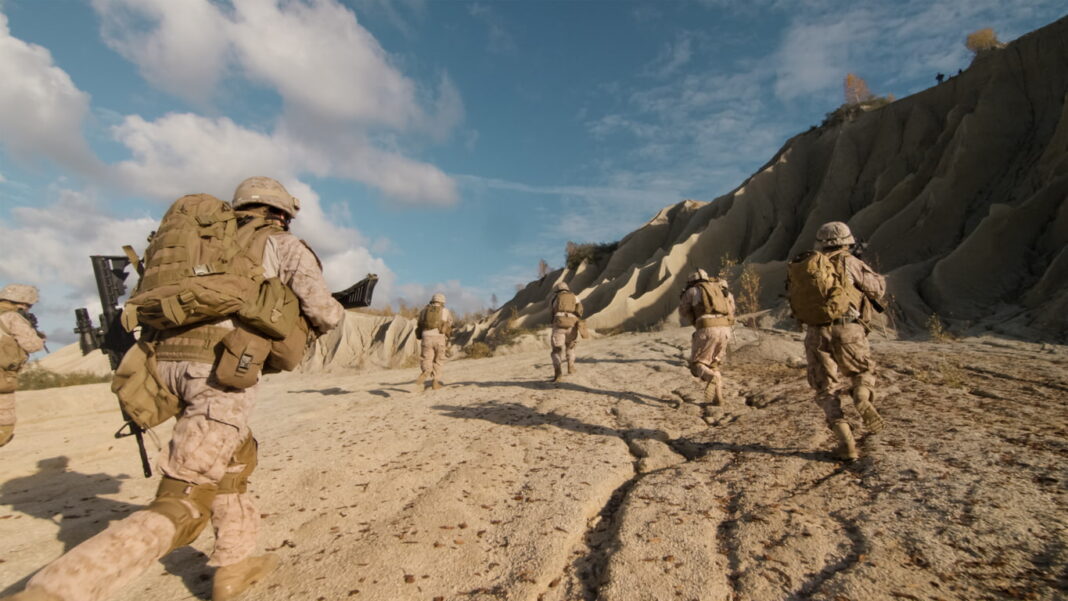
As we flew into Afghanistan’s Oruzgan Province, the pilot had the C-130 hugging the mountain range to avoid surface-to-air missiles. Another in the cockpit had his trigger-finger on a red button, ready to deploy missile-distracting flares if necessary. It’s late 2007 and I’m experiencing my first visit to the failed state.
Later I was travelling along a busy road to the Presidential Palace in Kabul, and I was surprised to observe the senior and hardened military officer next to me looking a little concerned, nervous even. I knew him well and was surprised. I asked of his wellbeing. His response was a stern one: “there is only one road in and out Minister and they’d know we are coming”. That explained the 4WDs speeding up our flanks, carrying explosive counter measures.
Afghanistan is a dangerous place, arguably the most dangerous in the world. But on each of my visits I felt safe because I was protected by our best, soldiers of the Special Air Service and 2nd Commando Regiments. Our elite Special Forces soldiers are relatively few. But they are also many, hundreds of them deployed to Afghanistan over the long period of the war.
The relatively small number of troopers under investigation as a result of the Brereton inquiry tells us that the report should not be taken as a reflection on all who served as part of the Special Operations Task Group. Further, we need to be mindful of what governments exposed our diggers to in Afghanistan, how much we expected of them, and how much we pushed them.
When the inquiry into their actions runs its course, we should have a separate inquiry into the decisions of those who deployed them, politicians and senior ADF leaders alike.
Of course, no mistake made in Canberra [Federal Parliament] excuses or justifies the terrible things we’ve read about in the Brereton report. By necessity, any soldier involved in unlawful conduct will pay a high price for their actions if the allegations are proven. But how did it come to this?
Those who pass the ultra-challenging “selection” course to become a Special Forces soldier must overcome extraordinary physical and mental tests. In effect, the Army melts them down and re-builds them into young men capable of the teamwork, mutual trust, and the mental toughness needed to deploy lethal force when necessary. In effect, they make “warriors” of them.
But as impressive and professional as the Army’s training and preparation processes are, and no matter how tough and skilled our frontline soldiers are, there is a limit to their mental resilience. In Afghanistan, we tested that limit. As the conflict dragged on, we took them away from their families again and again for longer periods of time as our resources became more and more stretched.
They were sent to hell to fight an enemy that respects none of the rules we do. Not the laws of armed conflict, not domestic law. Unlike our boys, enemy combatants were not constrained by any rules of engagement. By far the greatest perpetrators of war crimes against the innocent were the Taliban, and they go unpunished.
The enemy wore no uniform, making it hard to be sure who was a threat and who was not. Who to trust, and who not to trust. Having risked their lives to capture them, our men in uniform too often spotted those they had recently captured roaming the streets of Uruzgan Province thanks to NATO’s “catch and release” policy.
After putting their lives on the line for their country for years, our battle-fatigued soldiers started to question whether mission success was possible, despite achieving everything asked of them. The mission objectives kept changing, strategy seemed vague, and the global community was questioning the merits of NATO’s intervention. Shades of Vietnam.
Too often, medevac helicopters couldn’t be found for our wounded and close air support was often unavailable. When our patrol commanders were asked to go “beyond the wire” with members of the Afghan National Army in equal number, room in the Blackhawk for our partners was created by leaving the medic at home.
All of this may explain why a small number wrongly thought it justified to take matters into their own hands.
We should remember all of these things in the coming weeks and months as the next phases of this controversy play out. We need to investigate, prosecute and punish anyone found guilty of war crimes but we must maintain our respect and admiration for the many who wear, or have worn, the uniform of the Australian Defence Force. We must continue to honour them, respect them, and thank them. Lest we forget.
*Joel Fitzgibbon is the Federal Member for Hunter, and was the Minister for Defence 2007-2009*
This piece was first published in the Daily Telegraph on Friday 27 November 2020.
For more news:



